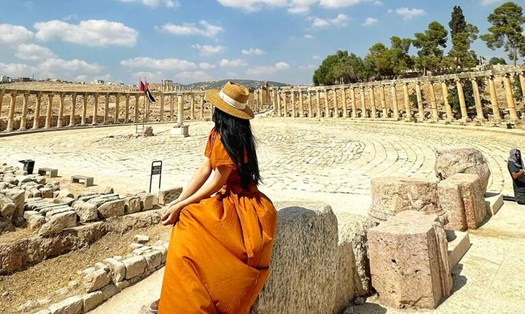In the digital age, the influence of artists does not stop on stage, through numbers showing the influence of artistic products... but can also impact many other areas of social life. The most recent vivid proof is the story of Son Tung M-TP sitting on a cyclo, drinking iced tea after a live show in Hanoi.
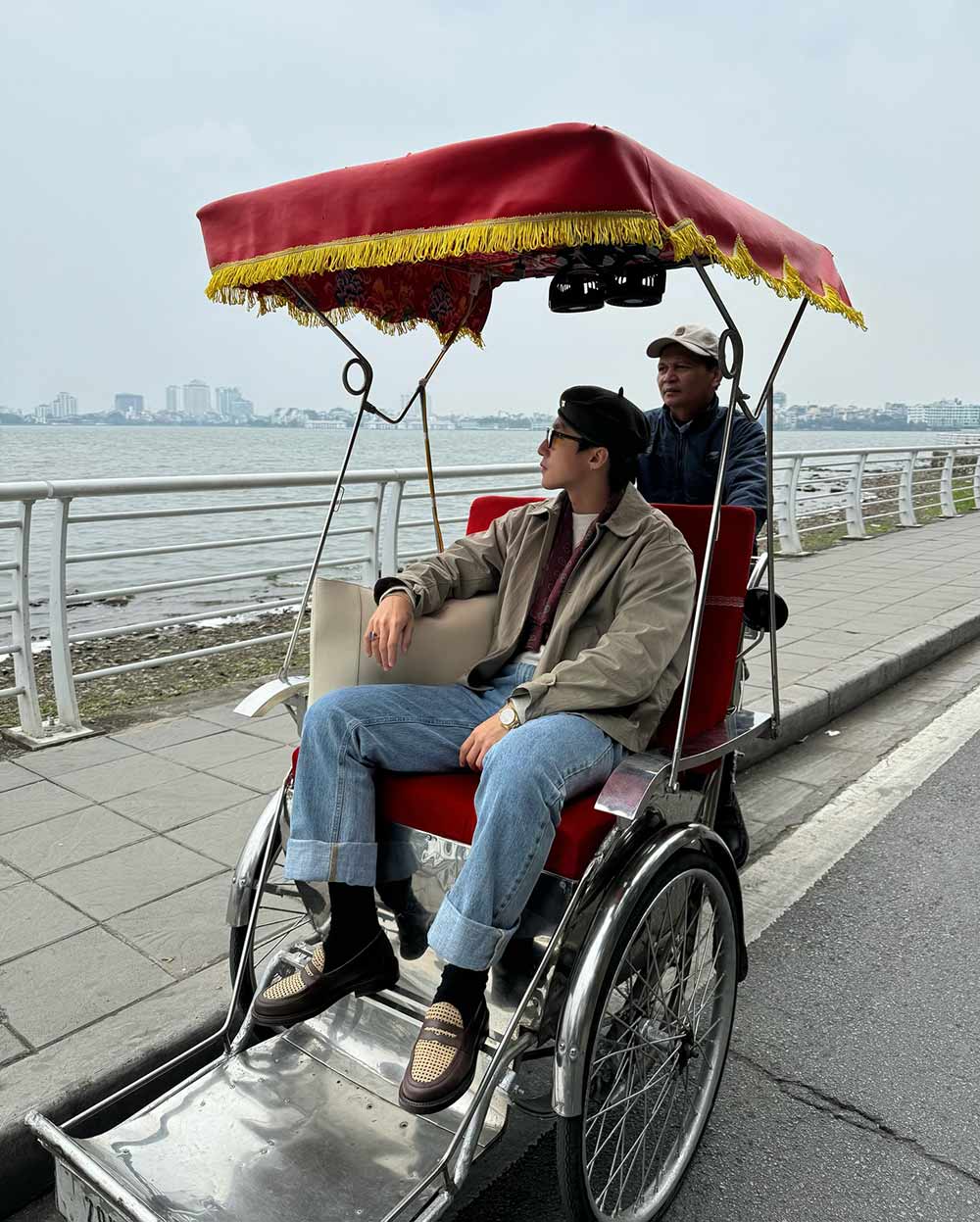
Celebrity appeal
On December 17, the image of Son Tung M-TP sitting on a cyclo around West Lake caused a stir in the online community. Immediately, hundreds of fans quickly "searched" for information about the cyclo driver who drove the male idol to make an appointment.
Many tourists quickly caught the trend. Pham Duc Thuyen (Hanoi) shared a photo of himself sitting on a cyclo that Son Tung M-TP used to ride with the caption: “Today I successfully followed my idol. I had to wait in line for a long time to get my turn.”
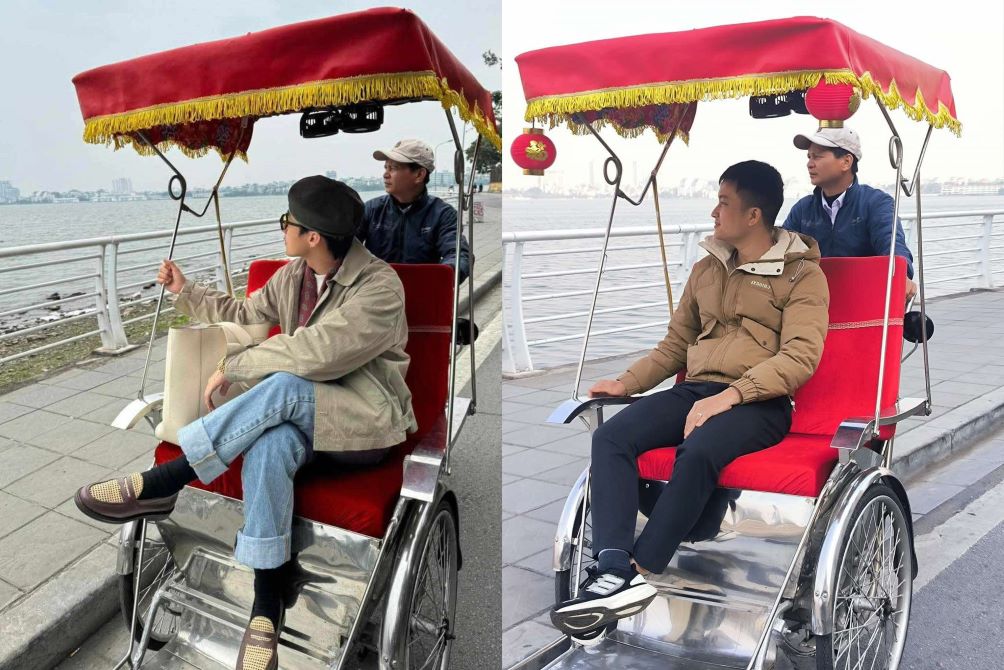
According to media expert Nguyen Ngoc Long, the reason why Son Tung M-TP riding a cyclo caused a stir in the online community is because this moment created an interesting contrast with Son Tung's familiar image - a top artist who always appears neat and stylish at major events.
The fact that a famous star like Son Tung sits drinking iced tea on the sidewalk or chooses a cyclo as a means of transportation makes fans feel the simplicity and familiarity, showing that even famous people can seek simple moments in life.
Not stopping there, it can be seen that Son Tung M-TP is famous for being a private person, rarely sharing about his private life or personal activities in the media.
Male idols often keep a certain distance from the public, focusing on art instead of side stories.
That's why, every time the male singer appears in a random everyday moment, fans immediately consider it an "event" worth discussing and spreading, feeling like they are discovering another part of his life - a part that they rarely have the chance to touch.
In addition, with the development of social networks, these moments have even greater influence. Just a small image or video of Son Tung is enough to trigger a chain effect, attracting millions of views and shares.
Nguyen Ngoc Long also explained that the FOMO (Fear of Missing Out) mentality makes people feel the need to participate in this trend, further promoting the spread of the fan wave.
The two sides of being "famous" thanks to idols
Through the story of Son Tung M-TP, it is undeniable that the widespread interest of fans not only brings significant income to small businesses but also contributes to promoting the culture and simple lifestyle of Vietnamese people.
The culture of iced tea on the sidewalk or cyclo, which was once popular and almost forgotten in modern life, has had a chance to revive thanks to the attraction of a famous star.
This is also an indirect way to help young people discover and appreciate more traditional cultural values.
However, on the negative side, not everyone can manage and take advantage of this opportunity properly.
Previously, in November 2024, Son Tung also visited a sidewalk tea shop in Hanoi and posted the photo on his personal Facebook page.
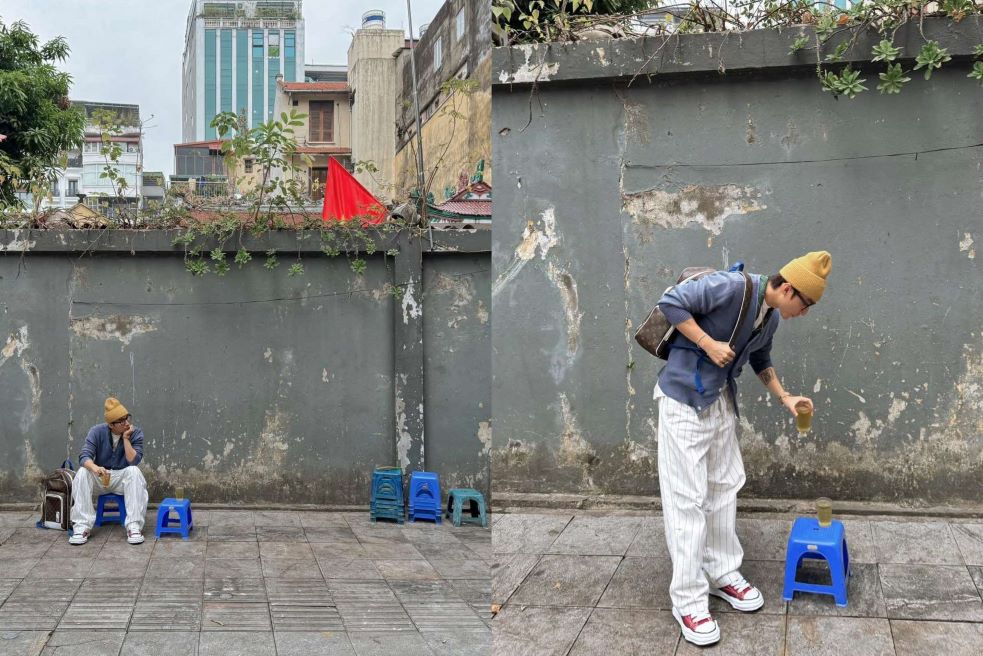
Immediately, hundreds of curious spectators flocked to the tea shop where the male idol had visited, leading to a state of public disorder. Authorities were present to disperse the crowd and request the tea shop to close, preventing unsafe gatherings.
This shows that celebrity influence can be a huge benefit. But if not exploited skillfully, it can also be a double-edged sword, putting pressure on the business or destination.
Potential for tourism development seen from the case of Son Tung M-TP drinking iced tea and riding a cyclo
From the perspective of tourism development, artists' daily moments can become a great driving force for tourism development.
“Ordinary moments like Son Tung’s, if well-directed, are not only entertaining stories but can also spread meaningful messages. For example, encouraging simplicity, closeness, or promoting traditional Vietnamese culture,” said Mr. Long.
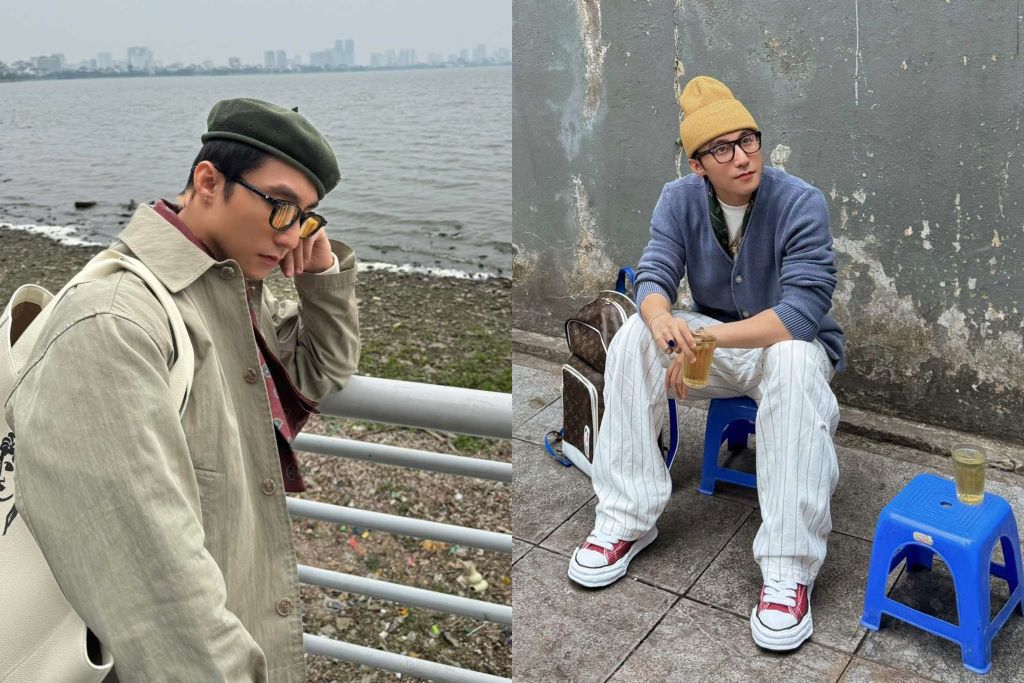
In addition, this can also become a source of inspiration for building unique experiential tours.
Instead of traditional travel itineraries, travel companies can develop “star-following” tours – where tourists experience local culture through the lens of celebrities.
However, to exploit this potential sustainably, both destinations and tourism businesses need to have a systematic development strategy. The problem is how to satisfy the passion for idols while avoiding causing unnecessary consequences, such as disturbing the lives of others or disrupting public order.
Finally, the role of the media in this case should not stop at transmitting information but should go further - becoming a "guide" to help stakeholders effectively leverage the influence of these phenomena.





